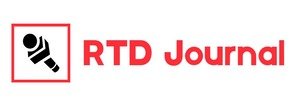Exor’s Growing Interest in Healthcare Sector: A Strategic Move for Long-Term Growth

Exor, the investment arm of the Agnelli family, has set its sights on the healthcare industry, positioning itself for long-term growth. With an already substantial investment of nearly 4 billion euros ($4.3 billion), Exor’s CEO, John Elkann, emphasized the importance of innovative approaches to address global health challenges.

Healthcare: A Structural Growth Sector
Elkann’s annual letter to Exor shareholders highlighted the rising costs of healthcare services and the critical shortage of medical staff as driving forces behind the demand for novel solutions. Exor views healthcare as a long-term, structural growth sector, aligning with its diversified investment strategy across various industries, including manufacturing, media, fashion, sport, and technology.
Strategic Investments
Exor’s foray into healthcare began in recent years, fueled by the proceeds from the sale of reinsurer PartnerRe in 2022. The company made direct investments in healthcare companies and established a venture capital arm dedicated to the sector. Notably, Exor became the single largest investor in Philips, holding a 15% share in the health technology giant. Additionally, it acquired stakes in France’s Institut Merieux and Lifenet Healthcare, an Italian company managing hospitals and outpatient clinics.
Cash Allocation and Dividends
Exor currently holds 1.7 billion euros in available cash. However, this amount has already been earmarked for planned investments, including further commitments to Institut Merieux and Exor’s share buyback program. In addition, the company anticipates receiving approximately 1.1 billion euros in dividends during 2024.
Net Asset Value (NAV) Surge
Exor’s net asset value surged to 35.5 billion euros in 2023, up from 28.2 billion euros the previous year. This growth was primarily driven by the strong performance of automotive giants Ferrari and Stellantis. Notably, Exor’s change in status from a holding company to an ‘investment entity’ under IFRS 10 European accounting rules allows it to deconsolidate portfolio companies from its balance sheet, resulting in an estimated one-off non-cash gain of approximately 12 billion euros.
Conclusion
Exor’s strategic focus on healthcare underscores its commitment to addressing global health challenges while ensuring sustainable growth. As the world grapples with evolving healthcare needs, Exor’s investments position it at the forefront of transformative solutions.




